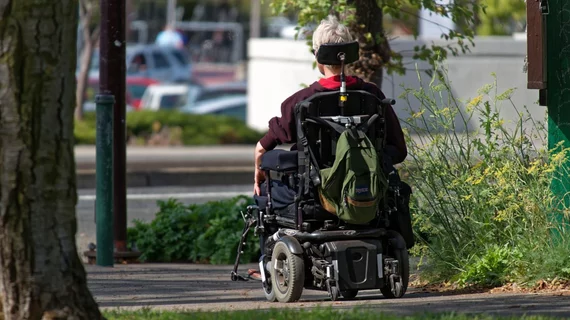Brain-computer interface set for clinical trial in people with paralysis
Researchers in Australia are about to begin testing, in humans, a brain-computer interface created to restore communication in people with severe paralysis.
The announcement comes from the company developing the technology, Synchron, which is based in Campbell, Calif., and Melbourne.
Synchron says the AI-aided device, called Stentrode, is the only one of its kind that doesn’t require open-brain surgery. It’s designed to pick up electrical frequencies emitted by the brain via a wireless node implanted in the chest. The impulses send signals wirelessly from the brain to a digital language platform.
The clinical trial of the Stentrode, which works in concert with a brain-controlled handsfree app platform called brainOS, will investigate the safety of the device as well as the stability of the signals sent to the language platform.
Participating patients will include those with spinal cord injuries, stroke damage, muscular dystrophy or ALS.
The human trial will follow published preclinical studies establishing the technology’s long-term safety in animals.
Synchron says the FDA has contributed to planning the upcoming trial so that the safety and efficacy data it returns can guide evaluation of the technology for possible marketing in the U.S.
Synchron CEO Thomas Oxley, MD, PhD, says the first-in-human trial of the Stentrode represents a “major milestone” for the brain-computer interface industry.
“By using veins as a naturally existing highway into the brain, we have been able to reach the clinical stage significantly earlier than other more invasive approaches,” he adds.
Funding for development of the technology included grants from the U.S. Defense Advanced Research Projects Agency (DARPA) and U.S. Department of Defense (DoD), according to the announcement.

